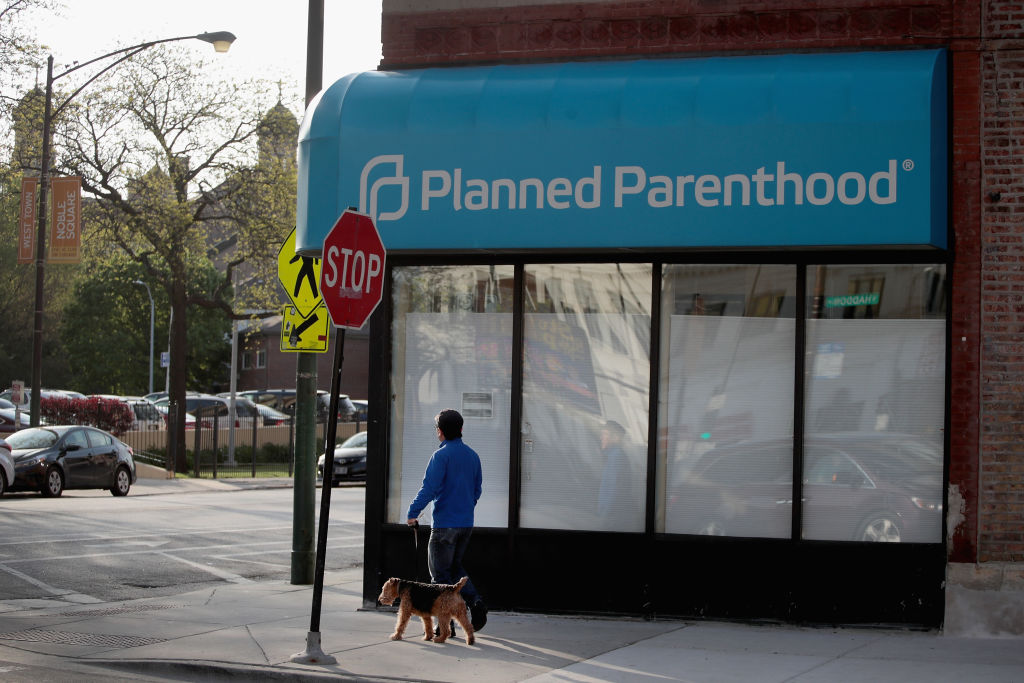
Millions of patients may struggle to get the family-planning care they need after Planned Parenthood on Monday decided to leave the federal Title X program, which annually provides $286 million in grants to groups across the country for services including cancer screenings, STD testing and birth control consultations.
“We’re trying to do all we can to ensure that the care continues,” Acting Planned Parenthood President Alexis McGill Johnson said on a call with reporters Monday. “Using fundraising to do what should be a state responsibility, a federal responsibility, is really the challenge. It’s like holding an umbrella during a tsunami.”
Planned Parenthood announced last week that it would leave the Title X program—thereby sacrificing millions of dollars in federal funding—rather than comply with Trump Administration regulations first announced earlier this year. The new rules, which Planned Parenthood has called a “gag rule,” prevent providers that receive Title X funding from giving abortion referrals or telling patients where to obtain one, and will also require abortion providers to be separate from those that use Title X funding for other services.
The U.S. Department of Health and Human Services (HHS) has rejected the characterization of the policy as a gag rule, and wrote in an announcement posted on its site that, “The Final Rule does NOT include the 1988 Regulation’s prohibition on counseling on abortion – characterized by some as a ‘gag rule’ – but neither does it retain the mandate that all grantees MUST counsel on, and refer for, abortion. Referral for abortion as a method of family planning is not permitted, because the statute written by Congress prohibits funding programs where abortion is a method of family planning.”
Clinics had until Monday to send letters of compliance to HHS. Planned Parenthood said it would not remain in the program unless the United States Court of Appeals for the Ninth Circuit stepped in to overrule what it called an “unethical” policy, but the court did not do so before Aug. 19.
McGill Johnson declined to disclose how much funding Planned Parenthood stands to lose by leaving the program, but the number is likely significant: Planned Parenthood was the largest Title X beneficiary, and the group estimates that about 40% of the 4 million patients served by the program each year—who are disproportionately low-income patients and those of color—are treated at its health centers. She said Planned Parenthood will draw on emergency funds to help close the gap, but the impact will “vary state by state.” She did not specify whether some clinics were at risk of closing or significantly restricting services.
McGill Johnson did say, however, that the restrictions could force Planned Parenthood patients who cannot afford to go elsewhere to delay or forgo medical care—especially in states, like Utah, where Planned Parenthood is currently the only Title X grantee. She predicted that wait times will get longer, appointments will be delayed and some women will have to drive hundreds of miles to find clinics that can provide birth control and other care.
Illinois is one of seven states to mirror Planned Parenthood’s actions by refusing Title X funding in light of the regulations. On the call Monday, Illinois Gov. J.B. Pritzker called on federal lawmakers to help override the policy. (The Democrat-dominated House of Representatives has passed a spending bill that would block the Title X restrictions; if the Republican-led Senate did the same, which remains unlikely, it could override HHS’ policy.)
“An attack of this magnitude clearly calls for a federal solution,” Pritzker said. “In Illinois we have not, and will not, support this gag rule. We will make sure that access to these services remains available, because in Illinois, we trust women.”
Planned Parenthood, along with other health organizations and about 20 states, continue to challenge the gag rule in court. Oral arguments will be heard in California during the week of Sept. 23, Planned Parenthood officials said on the call. Until then, the Ninth Circuit Court’s decision allows HHS to enforce the rule.
More Must-Reads from TIME
- Cybersecurity Experts Are Sounding the Alarm on DOGE
- Meet the 2025 Women of the Year
- The Harsh Truth About Disability Inclusion
- Why Do More Young Adults Have Cancer?
- Colman Domingo Leads With Radical Love
- How to Get Better at Doing Things Alone
- Michelle Zauner Stares Down the Darkness
Write to Jamie Ducharme at jamie.ducharme@time.com